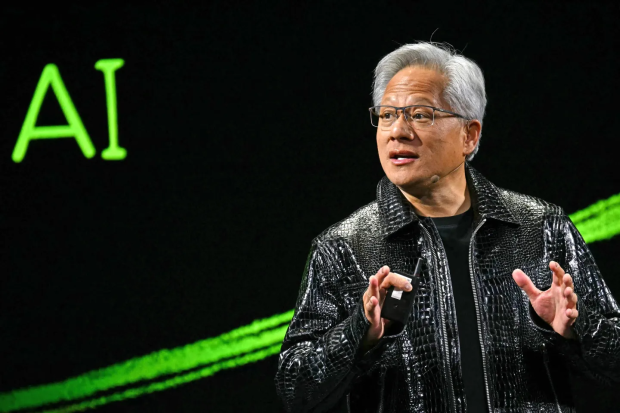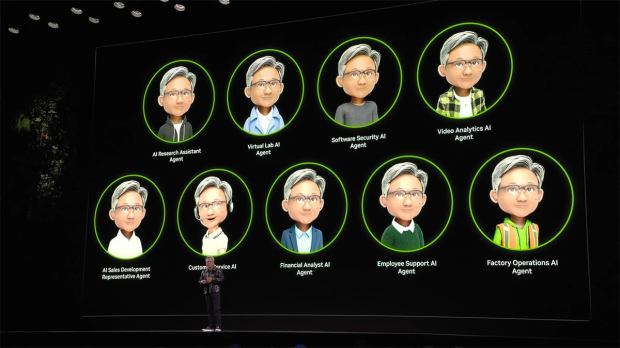Job displacement is one of the most common concerns surrounding the rise of artificial intelligence. AI agents in particular, as speculated by NVIDIA CEO Jensen Huang, are the technology with the largest potential for this to occur.
“In a lot of ways, the IT department of every company is going to be the HR department of AI agents in the future.” he said at CES 2025.
Popular Now: GTA 6 is a ‘console release’ says Rockstar publisher, no PC version coming any time soon

Credit: Getty Images
VIEW GALLERY – 3 IMAGES
A recent article published by industry experts from BCG (Boston Consulting Group) and INSEAD, shed some light on how modern companies are integrating AI co-workers into their operations. The piece introduces the term ‘hybrid organization‘, which refers to a mixture of humans, machines, and AI coworkers within a company. This type of company is referred to as ‘the next frontier’: a future where operations are defined by the interactions between humans and AI.
While recently released AI agents such as OpenAI’s ‘Operator’ and Cognition AI’s ‘Devin’, have so far failed to live up to expectations. The report cites some real-world examples of companies already integrating AI co-workers into their workforce.
“the pharmaceutical company Moderna, have already begun this organizational shift by incorporating digital technologies under the remit of their chief human resources officer or chief people officer.”
It also cites the example of software company Salesforce, which has begun using its AI support tool, Agentforce, to streamline customer inquiries. It follows this by stating how, while the tool was successful with customer inquiries, it was important to teach managers the importance of interpreting AI-driven findings and understanding AI’s fallacies.
The article also presents some speculative scenarios almost akin to science fiction. For example, discussing how the capacity of AI agents can be ramped up or down depending on the business needs. Highlighting not only the potential importance of human-AI interfacing, but how it may become the bottleneck:
“AI agents will be able to operate around the clock and scale on-demand, and hence what is likely to slow operations down are the interfaces between humans and AI”
How we define ‘fit’ within a company was another area of speculation. In an AI-driven future, the article discusses how rather than ‘cultural fit’ being the criteria for assessing candidates, ‘interaction fit’ (the ability to work with AI coworkers) may become the new desired skill. Which is a feasible thought experiment, given that understanding how to prompt (interact with) an AI chatbot is already emerging as a valued competency.
The authors hypothesize that aspects of traditional management will still remain critical for a ‘hybrid workforce.’ For example, the role that diversity plays in boosting innovation and problem-solving. However, in this instance, the definition shifts from diversity as we know it (between humans) to a new kind of diversity: the type that an AI agent brings to a team.

Credit: NVIDIA
However, like most science fiction, speculation regarding the potential for AI workforces must be tempered with a practical assessment of the tech’s current capabilities. Currently, consumer grade AI agents are not a viable substitute for a human operator. Though, as Jensen speculated at CES, perhaps we’ll see digital colleagues soon enough.



